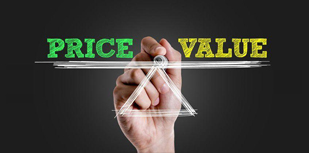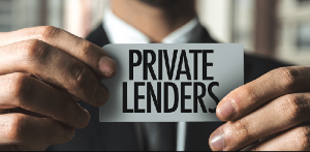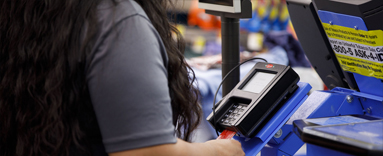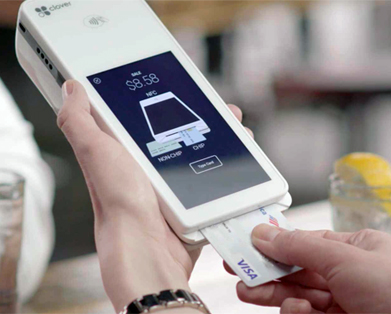Iused to shop for all the wrong reasons — usually because I was anxious or bored, or because I’d just had a tough week and felt that I deserved something nice. I knew I needed help with my spending, which seemed to be at the mercy of my emotions and all those darn Instagram ads.
Eventually, I was able to break the habit by developing a system, one that pushed me to be more mindful about what I consume. Now, before I buy anything, I pause to ask a series of questions that force me to reckon honestly with how the potential purchase fits into my life. In addition to saving me money, these questions have helped me learn to delay gratification and trust my own judgment — these days, whenever I hand over my credit card or click “purchase” (a rare event these days), I can be confident that I’m doing it for the right reasons.
Here’s the list. Perhaps the questions will be helpful for you the next time you visit your shopping cart.
Think of the item’s home
Where will the item live?
Where exactly will that bright-pink perfume bottle fit in your minimalist white bathroom? Can you clearly picture the spot for it?
Where will this item be in five years?
Will you still be using those bread-baking supplies that everyone’s buying in quarantine, or will they end up in the back of a drawer or in a landfill?
Is this item something you’re specifically seeking out or something you just stumbled on?
Did you come to this website in specific pursuit of snowshoes to replace your old ones, or were you just browsing the internet with no purpose in mind?
If you had to leave your house with one duffle bag of your possessions, would this item be it in?
Is this item something you need, or is it another piece of clutter that will hold little daily value?
How often will this item be used?
Is this item a daily source of joy?
Do you already have a similar item?
How many nail polishes, T-shirts, or computer gadgets do you already own? Is this item truly going to be that different?
Think of your emotions
How does this purchase feel right now?
Connecting with your emotions in the moment can help you avoid purchasing things out of boredom, anxiety, or self-pity. Buying something new might give your brain a quick shot of dopamine, but it cannot alleviate certain feelings in the long term.
Are you attaching a certain emotion to having this item in your life?
I buy a lot of bikinis, not because I wear them, but because I wish I had a reason to wear them. I imagine myself blissfully sitting on a beach somewhere. But the fact is I live in a landlocked state, we’re in a pandemic, and I won’t be near an ocean anytime soon.
What negative emotions might come with owning this item?
Buying a new car comes with maintenance expenses and depreciation. Dry-clean-only garments might cause you more headaches than joy. Think about the whole life of an item — not just the moment when it’s shiny and new.
If nobody was allowed to see this item but you, would you still buy it?
We don’t reflect enough on whether our purchases are extrinsically motivated. Are you buying the item for the purpose of gaining approval from your friends, neighbors, or followers?
Does the low or high cost of this item factor into your desire for it?
I used to buy multiple $1.99 tank tops at Forever 21 even though I already had dozens. It’s easy to get lured in by “sale” items. The opposite is also true: Buying the latest iPhone, for example, is often a way people communicate class.
Think of the money
If this isn’t a onetime payment, will the overall cost prevent you from purchasing something else later on?
I don’t have Netflix, a monthly gym membership, or Spotify. Not having recurring fees allows me to put my money toward expenses and savings.
Is there a way to get this item or service for free?
There is often more than one way to get the things we want. I find that family and friends are often willing to trade items and services. And using the free version of certain services isn’t all that bad. If the free version of a streaming service has ads, for instance, you can always do something with those pockets of time, like send an email, wash a few dishes, or do 50 jumping jacks.
Does this item appreciate or depreciate?
For any larger purchase, do some research to understand its resale value. Then take it into consideration when deciding how much you’re willing to invest.
How is this item being financed?
If you have to make monthly payments to afford that new TV, it’s not worth it. An appreciating house payment? An education? Probably worth it.
Think of the source
Who owns the company selling the item?
I have been trying to buy more of the things I need from female and BIPOC entrepreneurs. It’s not realistic for me to do this with every purchase, but it’s important for me to know where my money is going and what it’s supporting. What are the company’s values? Do they support the environment, like Patagonia, or do they operate without accepting responsibility for their pollution and waste?
Where does the company make this product?
Is the item made in a U.S. warehouse or abroad in a place that doesn’t regulate its labor practices? Do the workers have health insurance, or are they dying from heat stroke?
What chemicals/treatments are used/created in this product?
Can you tell where the scent in the product comes from? It’s important to check the chemicals and additives, especially for items that live on your body. Claire’s makeup, for instance, was found to contain lead and asbestos.
Does this company protect your data?
Will this company continue to advertise similar products to you so you will keep spending? For instance, Google can do whatever it wants with Fitbit users’ data.
You may have other questions to add to this list, based on your own values and experiences. And don’t feel guilty if you make an impulse buy every once in a while. I certainly still do it sometimes. But going through these questions can make a spur-of-the-moment splurge feel less like an uncontrollable habit and more like a treat to be savored.
This article was originally published By Sadie Lee, forge.medium.com.










